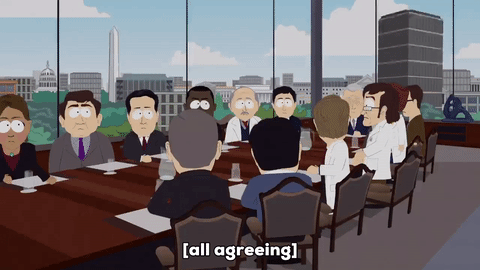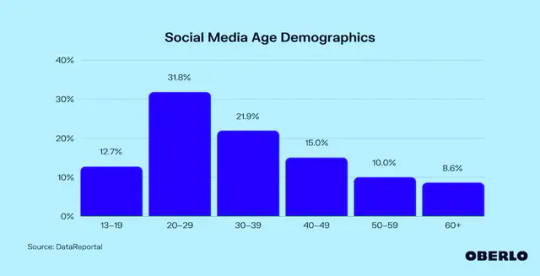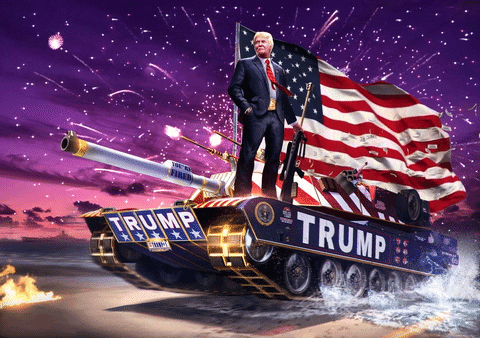This blog is strictly for educational purposes only. No copyright infringement intended.
Don't wanna be here? Send us removal request.
Text
Navigating China's Gaming Landscape: A Comprehensive Examination
Introduction:

In the ever-evolving landscape of technology and culture, China's recent decision to enforce stringent restrictions on online gaming for minors has ignited a global dialogue. This blog aims to provide an in-depth exploration of the multifaceted dimensions surrounding China's gaming crackdown. We will delve into the motivations behind the regulations, analyze their impacts on young gamers, critically examine potential consequences, and introduce new perspectives to ensure a comprehensive understanding of this complex issue.
Understanding the Rationale Behind China's Gaming Crackdown:
China's move to impose strict regulations on online gaming is rooted in escalating concerns about the adverse effects of prolonged gaming on the physical and mental health of young individuals. A growing body of research has highlighted the risks associated with excessive gaming, ranging from addiction and sleep disturbances to social isolation and academic decline.
The Chinese government asserts that these regulations are essential to protect the health and well-being of its youth. By limiting the time minors can spend on gaming, the government aims to curb the prevalence of gaming addiction and its correlated health problems. This section will provide a nuanced exploration of the rationale behind China's decision, examining the evidence supporting the need for intervention and potential alternative approaches.
Assessing the Impact of China's Gaming Restrictions:
The implementation of China's gaming restrictions has significantly altered the landscape for young gamers in the country. With minors now limited to one hour of gaming per day on weekdays and three hours on weekends, and a blanket ban on online gaming between 10 p.m. and 8 a.m., there are both intended and unintended consequences to consider.
While the government maintains that these measures are crucial to safeguarding the health of its youth, resistance from young gamers and concerns from critics prompt an in-depth analysis of the impact of these restrictions. This section will explore how these restrictions are shaping the lives of young gamers, whether the intended outcomes are being achieved, and if adjustments are necessary for a more effective approach.
Exploring the Potential Consequences of China's Gaming Crackdown:
While the intentions behind China's gaming restrictions are undoubtedly well-meaning, there are valid concerns about potential unintended consequences. This section will delve into the following areas:

Increased Surveillance: Examining the possibility of heightened surveillance of online gaming activity and the potential expansion of the existing surveillance network. How might this impact privacy, and is there a balance to be struck between oversight and personal freedom?
Black Markets for Gaming Access: Investigating the concern that the restrictions could lead to the development of black markets for gaming access, allowing minors to bypass the rules. How can the government adapt its approach to ensure that restrictions do not inadvertently encourage illicit activities?
Social Isolation: Exploring the potential for increased social isolation among minors due to restricted online interaction with peers. Is there a more nuanced approach that balances the need for restriction with the importance of fostering healthy social interaction? How can the government actively promote alternatives that encourage socialization?
The Role of Education and Collaboration:
In navigating the complexities of gaming regulation, a holistic approach is necessary. This section will highlight the importance of education, awareness, and collaboration among parents, industry stakeholders, and government agencies. By fostering a collective understanding and responsibility, we can create a more comprehensive framework that protects young minds without stifling creativity, innovation, and personal liberty.
Broader Societal Implications:
Beyond the immediate impact on gamers, the gaming restrictions have broader societal implications. Examining how these regulations may influence the gaming industry, technological innovation, and the perception of personal freedom is crucial. Additionally, considering international perspectives and the potential effects on China's global standing in the gaming community adds a layer of complexity to the discussion.

Balancing Individual Freedom and Societal Well-being:
This section will explore the delicate balance between individual freedoms and societal well-being. While protecting the health of the youth is paramount, it is equally important to ensure that the measures implemented do not infringe upon personal liberties. Can a middle ground be found that allows for responsible gaming while addressing the concerns raised by the government?
Conclusion:
China's gaming crackdown is a nuanced issue with implications that reach beyond the gaming community. While the government's intentions are rooted in protecting the well-being of its youth, a careful balance must be struck to avoid unintended consequences. This blog argues for a more comprehensive and balanced approach, emphasizing the need for education, awareness, and collaboration. Only through thoughtful consideration and measured adjustments can China navigate the complexities of gaming regulation, ensuring the protection of young minds without stifling creativity, innovation, and personal liberty. With ongoing evaluation and adaptive policies, China can lead the way in fostering a healthy gaming landscape for its youth and setting a global standard for responsible gaming practices.
4 notes
·
View notes
Text
My Journey as an Aston Martin and Fernando Alonso Fan: A Reflection on Fandom

As a passionate Formula One enthusiast, I've found myself deeply immersed in the vibrant community that surrounds the sport. My fandom is particularly centered around Aston Martin, a team that has captivated me with its rich history, unwavering determination, and the presence of the legendary Fernando Alonso.
My journey into F1 fandom began with a casual interest, sparked by the occasional race I would catch on television. As I delved deeper into the sport, I was captivated by the sheer complexity of the cars, the strategic brilliance of the teams, and the raw talent of the drivers. But it was the sense of community that truly drew me in.
Being a part of the Formula 1 fandom has been an exhilarating experience, particularly supporting Team Aston Martin and the legendary driver, Fernando Alonso. This blog post aims to delve into my personal journey as a fan, highlighting the sense of community I've found online, addressing media stereotypes about fans, and sharing my own experience of being a passionate follower of this sport.
Finding a Sense of Community Online: The internet has revolutionized the way fans connect with one another, creating a vibrant and inclusive community. Online forums, social media platforms, and dedicated websites have become virtual meeting places for fans to share their excitement, exchange opinions, and support their favorite teams and drivers. Through these online platforms, I have had the opportunity to interact with fellow Aston Martin and Alonso fans from different corners of the world, fostering a sense of belonging and unity despite geographical boundaries. It is truly remarkable how a shared passion can bring individuals together, forming lasting friendships in the process.
Challenging Media Stereotypes: Unfortunately, media representations of fans often tend to be unfair and misleading. Fans are sometimes portrayed as "weird" or "overly emotional," which creates an inaccurate perception of their dedication and enthusiasm. While it is true that fans can display strong emotions during races, it is crucial to celebrate their passion rather than dismiss it. The media should strive to present a more balanced representation of fans, acknowledging the positive impact they have on the sport and highlighting their knowledge, commitment, and unwavering support.
My Personal Experience: As an Aston Martin and Fernando Alonso fan, my journey through the world of Formula 1 has been an incredible rollercoaster ride. From the highs of thrilling victories to the lows of disappointing races, my fandom has instilled in me a deep appreciation for the sport's intricacies and the incredible talent of the drivers. I have eagerly followed every race, eagerly discussing strategies, analyzing lap times, and engaging in friendly banter with fellow fans. The anticipation before a race, the adrenaline rush during overtakes, and the excitement of witnessing the team's progress have made me feel like an integral part of the Formula 1 community.
Fandom has not only enriched my knowledge of the sport but has also provided me with a support system of like-minded individuals. Sharing our triumphs and disappointments, exchanging insights and opinions, and collectively celebrating the achievements of our favorite team and driver have fostered a deep sense of camaraderie. It is this sense of community that makes being a part of the fandom so rewarding and unforgettable.
Conclusion: Being a fan of Aston Martin and Fernando Alonso has been an incredible journey, filled with thrilling moments and a strong sense of community. Online platforms have allowed me to connect with fellow fans, breaking down geographical barriers and creating lasting friendships. While media representations may sometimes be unfair, it is important to challenge stereotypes and celebrate the passion and dedication fans bring to the sport. My personal experience as a fan has been nothing short of amazing, deepening my love for Formula 1 and providing me with a support system that shares my enthusiasm and excitement. Fandom truly is a remarkable experience that brings people together and makes the sport even more enjoyable.

10 notes
·
View notes
Text
Twitter's Censure of Donald Trump: A Violation of Free Speech Principles and Democracy?

Twitter's censure of Donald Trump while he was still president was a highly controversial issue. On the one hand, Twitter is a private company and has the right to set its own rules for what kind of content is allowed on its platform. On the other hand, Twitter is a powerful platform that has become essential for public discourse, and some people believe that Twitter's decision to censor Trump was a violation of free speech principles and democracy.
In this blog post, we will explore the arguments on both sides of the issue and try to come to a conclusion about whether Twitter's actions were justified.
Arguments in favor of Twitter's decision

Trump's tweets repeatedly violated Twitter's policies against hate speech and glorifying violence. For example, Trump tweeted that he would "send in the National Guard" and "when the looting starts, the shooting starts" in response to protests following the death of George Floyd. Twitter's policies prohibit users from posting content that incites violence or promotes hatred against individuals or groups.
Twitter has a responsibility to protect its users from harmful and dangerous content. Twitter's policies are designed to create a safe and welcoming environment for all users. The company has a responsibility to enforce its policies and to remove content that violates them.
Trump's tweets were undermining democracy and inciting violence. Trump's tweets often spread misinformation about the election and attacked the legitimacy of the electoral process. He also encouraged his supporters to attack the Capitol on January 6, 2021. Twitter's decision to censor Trump was an attempt to protect democracy and to prevent violence.
Arguments against Twitter's decision
Twitter is a powerful platform that has become essential for public discourse. Twitter is a major source of news and information for millions of people around the world. It is also a platform that is used by politicians and other public figures to communicate with the public. Twitter's decision to censor Trump was seen by some as an attempt to silence a powerful voice.
Silencing a sitting president is a violation of democratic norms. The president of the United States is the leader of the free world. Silencing the president is a dangerous precedent to set, and it undermines the principle of free speech.
Twitter's decision was a form of censorship and sets a dangerous precedent. Twitter is a private company, but it is also a powerful platform that has become essential for public discourse. Twitter's decision to censor Trump raises concerns about the power of social media companies and the potential for these companies to censor dissenting voices.
Conclusion
So, was Twitter's decision to censor Donald Trump justified? There are strong arguments on both sides of the issue.
On the one hand, Twitter is a private company and has the right to set its own rules for what kind of content is allowed on its platform. Twitter's policies are designed to create a safe and welcoming environment for all users, and the company has a responsibility to enforce its policies.
On the other hand, Twitter is a powerful platform that has become essential for public discourse. Silencing a sitting president is a dangerous precedent to set, and it undermines the principle of free speech.
Ultimately, the question of whether Twitter's decision was justified is a matter of opinion. There is no easy answer.
My personal opinion

I believe that Twitter's decision to censor Donald Trump was a necessary step to protect democracy and to prevent violence. Trump's tweets repeatedly violated Twitter's policies against hate speech and glorifying violence. He also used Twitter to spread misinformation about the election and to attack the legitimacy of the electoral process.
I understand the concerns about the power of social media companies and the potential for these companies to censor dissenting voices. However, I believe that Twitter was justified in censoring Trump in this case. Trump's tweets were a threat to democracy and to the safety of the American people.
I hope that this blog post has helped to illuminate the complex issues surrounding Twitter's decision to censor Donald Trump.
1 note
·
View note
Text
Political Engagement
Have you ever wondered about what is politic and political engagement is? If yes, lets take a minutes to get to know what is politic and what did they do.

gift from Tenor
What is politic? As we know, politic is one of the most popular topics in the world. Why?? The British Academy, Professor Christina Boswell FBA stated that politics is something that is necessary about sorting out the argument over the giving out the things (Boswell, 2020). In a general way, politics is a communication between communities, organisations or even individuals that look forward to achieve the option about doing a collaborative choice or find a solution for some collaborative problem. As political are involve in governments, these communications become their primary focus in political science (Rom et al.).

Gif from Gifer
Now what is political engagement? According to Carole Jean, political engagement is a voluntary activities handle by a bunch of public to give impact public policy, either directly or by affecting the selection of persons who make policies (Uhlaner, 2015).
Meanwhile, world bank define political engagement as the involvement of communities in voting and allows the leader who have power in government, as well as become part of competitor for leadership (n.d.).
Who is the main user of social media?

Image from Oberlo
Based on the global demographics above, we can say that aged 20-29 are the most users of social media. The previously mentioned group is about 31.8% worldwide amount of social media users. Most of these users are male which is about 17.5% compare to female, only 14.3%. Second higher group is users aged 30-29, with 21.9%. Same as the previous group, the majority users are male with 12.1% and just 9.8% are female. The third higher group is aged 13-19 with 12.7% and 10% for users aged 50-59 in social media. The lowest users is aged 60 and above with 8.6%. From this demographics research, we can tell that the older that person, the lesser their spent time on social media. This might because young-adults is likely social media as a source of all the information. On the other hand, the senior citizens is doubtful and still prefer old method such as television (Oberlo, 2023).
How social media affects politics?

Gif from Pinterest
According to (Satterfield, 2020), as internet became more useful these days, same goes to the politics. To be specific, social media is now a become major factor in political movements and in the way people think about issues.
Participants and their followers frequently share their thought on social media such as X (previously was known as Twitter) and Facebook account. Every politic parties will requests for donations and spread propaganda through their own pages. Lets take a look on how social media can give impact politics nowadays.
Demographics and targeting
To make sure that messages and ads grasp the right audience, objective is used all over the advertising the advertising corporation. For example, if a participant aims for a group of voters, women's concerns, college students or elderly people, they can now create their messages. Participants and politicians are able to use their targeted advertising and analytics just like some ads on Facebook. Therefore, it is not a coincidence if you aware that political message seem to be speak to you directly.
2. News around the clock
Poll results, shared rumor and news haste on social media is one of the way that caused the politics transformed. While during the previous days, to get the latest news, citizens waited for TV news show or the next newspaper. Meanwhile via online, we can get the latest news 24/7. Most citizen spend extra time on X and Facebook compare to how they do on political sites or serious news. In the words, whenever you logon your social media account, you will automatically get all of the people's thoughts or the latest viral news on social media.
3. The impact of polls
The internet really gave a huge impact by increasing the amount of poll results to the political news. Social media play their part to accelerated this very well. Polls results also give a huge impact on elections. Such as, if people think one participant is already far ahead in the contest, they may conclude the other participants will be pointless voting for the loser. It will a big deal of tension on participants to move forward of their competitor when netizen start to post the latest poll results.
List of references
FBA, P.C.B. (2020) ‘What is politics?’, The British Academy, 14 January. Available at: https://www.thebritishacademy.ac.uk/blog/what-is-politics/ (Accessed: 08 October 2023).
Rom, M.C., Hidaka, M. and Walker, R.B. (no date) 1.1 defining politics: Who gets what, when, where, how, and why? - introduction to political science, OpenStax. Available at: https://openstax.org/books/introduction-political-science/pages/1-1-defining-politics-who-gets-what-when-where-how-and-why (Accessed: 08 October 2023).
Making Politics Work for Development (no date) World Bank. Available at: https://thedocs.worldbank.org/en/doc/612211464199873818-0050022016/original/Chapter2PoliticalEngagement.pdf (Accessed: 08 October 2023).
Uhlaner, C. J. (2015). Political Participation - an overview | ScienceDirect Topics. Sciencedirect.com. https://www.sciencedirect.com/topics/social-sciences/political-participation
(n.d.). Making Politics Work for Development [Review of Making Politics Work for Development]. In World Bank (p. 1). Retrieved October 17, 2023, from https://thedocs.worldbank.org/en/doc/612211464199873818-0050022016/original/Chapter2PoliticalEngagement.pdf
Oberlo. (2023). What Age Group Uses Social Media the Most? Www.oberlo.com. https://www.oberlo.com/statistics/what-age-group-uses-social-media-the-most#:~:text=According%20to%20recent%20research%2C%20global
Satterfield, H. (2020, March 11). How Social Media Affects Politics. Meltwater. https://www.meltwater.com/en/blog/social-media-affects-politics
Satterfield, H. (2020, March 11). How Social Media Affects Politics. Meltwater. https://www.meltwater.com/en/blog/social-media-affects-politics
#PoliticEngagement #Week5
2 notes
·
View notes
Text
How social media is being used to build political communities.

Building political communities has benefited greatly from the use of social media. Regardless of where they live, it enables people to connect with others who share their political opinions. Additionally, it makes it simpler for people to band together and support political issues.
Social media is being utilised in a variety of ways to create political communities. Using groups and forums is one popular method. People may organise events, share information, and discuss politics in these groups and forums. For instance, there are Facebook groups for people who support certain political issues as well as groups for fans of each of the main political parties.
Utilising hashtags is just another way that social media is being utilised to create political communities. People may use hashtags to search for and connect with others who are discussing similar political concerns. For instance, the #MeToo hashtag has been utilised to create a community of those who have been the victims of sexual harassment or assault.
Social media is also being used to create political communities by giving political figures and activists a forum to communicate with their followers. Political leaders may mobilise their fans, offer their opinions, and make announcements on social media. Social media may be used by activists to organise protests, gather money, and spread awareness of vital topics.
The development and organisation of political communities has been significantly impacted by social media. It has made it simpler for individuals to interact with political leaders and activists, organise and mobilise around political issues, and connect with those who share their political beliefs.
Here are some concrete instances of how political communities are being formed through the usage of social media:
Social media has been utilised by the Black Lives Matter movement in the US to create a network of activists opposing racial injustice. The campaign spreads awareness of police brutality and violence against Black people using hashtags like #BlackLivesMatter and #SayHerName. The Bharatiya Janata Party (BJP) in India has amassed a sizable following among young people thanks to social media. The party mobilises its members through social media to propagate its message of Hindu nationalism. The Workers' Party (PT) in Brazil has reached out to its followers in rural regions through social media. The party posts information about its initiatives on social media and also share information about its programs.
Benefits of building political communities on social media
Building political networks on social media has several advantages. First, social media facilitates communication amongst people who hold similar political beliefs. People may feel less alone and more a part of a larger community as a result of this.
Second, social media facilitates the organisation and mobilisation of individuals behind political issues. This is so that individuals may more quickly exchange information, plan activities, and find supporters thanks to social media networks.
Third, social media gives political figures and activists a way to communicate with their followers. This might encourage people to take action and raise public knowledge of political concerns.
Challenges of building political communities on social media
Even while there are numerous advantages, creating political communities on social media has certain drawbacks. The transmission of false information and disinformation via social media is a problem. This can lead to polarisation and conflict within political communities and make it difficult for individuals to determine which information to believe.
The potential for echo chambers in social media is another issue. People in this situation are only given information and viewpoints that support their preexisting ideas. This may cause people to solidify their opinions and become less receptive to novel concepts.
#mda2009#politics#socialmedia#spotify#soundcloud#drbertha_supremacy#facebook#twitter#week_5#mda20009
8 notes
·
View notes
Text
Blogging in the era of TikTok and Instagram ///!!
In today's digital environment, it is important to consider if blogging is still relevant in the era of TikToks and Instagram. We may take into account a number of factors, such as communities, socialisation, digital data, and organisations, to investigate this subject.
Communities:
Blogging: Historically, specialised groups and subject matter experts have used blogging as a platform. Bloggers frequently provide material that appeals to specialised interests and subject matter. These groups of people may be incredibly helpful and engaging. TikTok and Instagram: These two platforms also contain communities, although their behaviours are usually rather different. Platforms for sharing short movies and images build communities around popular culture trends, influencers, and aesthetic ideas. Instead of extended conversations, engagement frequently consists of likes, comments, and shares.
Socialisation:
Blogging: Blogging enables in-depth topic investigation and fosters deliberative dialogue through comments. It encourages long-form material that encourages in-depth discussion and analysis. TikTok and Instagram are two sites that emphasise rapid and attractive content more than others. Through likes, emoticons, and brief remarks, they promote social interaction. The exchanges are frequently more informal and centred on visuals.
Digital Data:
Blogging: A considerable volume of text is produced by blogs. This information may be used for SEO (Search Engine Optimisation), making it an important source of organic traffic over the long run. Bloggers may get in-depth information about user behaviour and content performance from analytics tools. TikTok and Instagram are two social media sites that produce a lot of graphic and video content. Although they provide analytics tools, the data may be more difficult to understand and the content's shelf life is frequently shorter owing to the frequent revisions.
Organisations:
Blogging: For content marketing, thought leadership, and SEO, many organisations continue to see value in blogging. A technique to build authority and offer in-depth information is through blogs. Organisations frequently utilise TikTok and Instagram for visual marketing, influencer collaborations, and brand recognition. Short-form material might be useful for swiftly reaching larger audiences.
In conclusion, the objectives and tastes of content producers and users will determine if blogging is still relevant in the TikTok and Instagram era.

#blogging#social media#MDA2009#Dr_Bertha_Supremacy#blogger#instagram#tiktok#spotify#soundcloud#media#ronaldo#taylor swift#quora#socialmedia
7 notes
·
View notes
Text

Good food good life
1 note
·
View note
Text

2 notes
·
View notes




